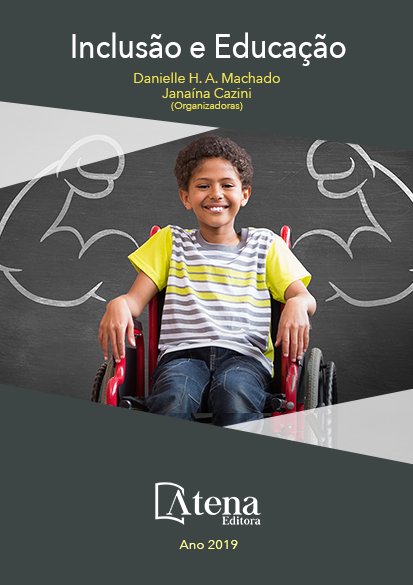
Educação Inclusiva: Práticas no Cotidiano de Bibliotecas Universitárias Federais
A inclusão de pessoas com
deficiência perpassa muitas nuanças, entre
as quais a educação, haja vista seu caráter
empoderador. O acesso à universidade é
uma conquista e um direito, mas repleto de
barreiras a serem superadas. Entre estas elas à
informação e ao conhecimento que sobrepõem,
pois uma educação de qualidade impõe
acessibilidade. Nesse contexto, as bibliotecas
universitárias são primordiais por serem
guardiãs e difusoras do conhecimento. Pensar
em inclusão em bibliotecas universitárias
é condição para uma autêntica educação
inclusiva no ensino superior. Portanto, o estudo
ora proposto se justifica pela relevância que
as bibliotecas têm na formação acadêmica
e no valor do conhecimento e da informação
para o empoderamento e equiparação de
oportunidades das pessoas com deficiência
em sua formação profissional. Este ensaio
objetivou investigar as práticas cotidianas de
atendimento a pessoas com deficiência nos
sistemas de bibliotecas nas universidades
federais das capitais brasileiras. A seleção
das bibliotecas teve como base o programa
Inclui, do MEC. Essa investigação procurou
orientar-se nos aspectos de acessibilidade:
atitudinal, tecnológico arquitetônico e de
acesso à informação e à comunicação. É um
estudo exploratório, tendo concluído que, das
23 universidades federais pesquisadas que
participam do Programa, 48% delas oferecem
algum atendimento, prevalecendo os aspectos
tecnológicos e de acesso à informação e à
comunicação. Os aspectos atitudinais foram
pouco observados, porém apesar disso, é
positivo o percentual de instituições envolvidas
na busca da inclusão, embora não tenham
sido observadas pelas informações oferecidas
ações que identifiquem uma política de inclusão
bem definida e clara, que perpasse todos os
setores dos sistemas de bibliotecas analisados.
Educação Inclusiva: Práticas no Cotidiano de Bibliotecas Universitárias Federais
-
DOI: 10.22533/at.ed.29219150124
-
Palavras-chave: Educação inclusiva, Bibliotecas universitárias, Pessoas com deficiência.
-
Keywords: Inclusive education, University libraries, People with disabilities.
-
Abstract:
The inclusion of people with
disabilities permeates many nuances among
them, education, due to its empowering character.
Access to university is an achievement and a
right, which is full of barriers to be overcomed,
among them the barriers to information and
knowledge overlap, because quality education
imposes accessibility. In this context, university libraries are paramount for being
guardians and diffusers of knowledge. Thinking of inclusion at university libraries is a
prerequisite for authentic inclusive education in higher education. Therefore, the study
proposed here is justified by the relevance that libraries have in academic training and
the value of knowledge as well as information for the empowerment and equalization of
opportunities of people with disabilities in their vocational training process. The present
research aimed at investigating the daily practices of attending people with disabilities
in the library systems in the federal universities of the Brazilian capitals. The selection
of the libraries was based on the MEC Inclui program. This research aimed at focusing
on accessibility aspects like the following: atitudinal, technological, architectural and
access to information as well as communication. This is an exploratory study out of
which we concluded that 48% of the 23 federal universities that took part in the program
offer some assistance prevailing the technological and access to information as well
as communication aspects. The attitudinal issues were poorly observed, in spite of
that, the percentage of institutions involved in the inclusion process was positive, even
though it was not seen by the information presented here, actions that identify a welldefined
and clear inclusion policy that encompass all sectors of the library systems
analyzed in the present research.
-
Número de páginas: 15
- Fernanda Nunes de Araújo


